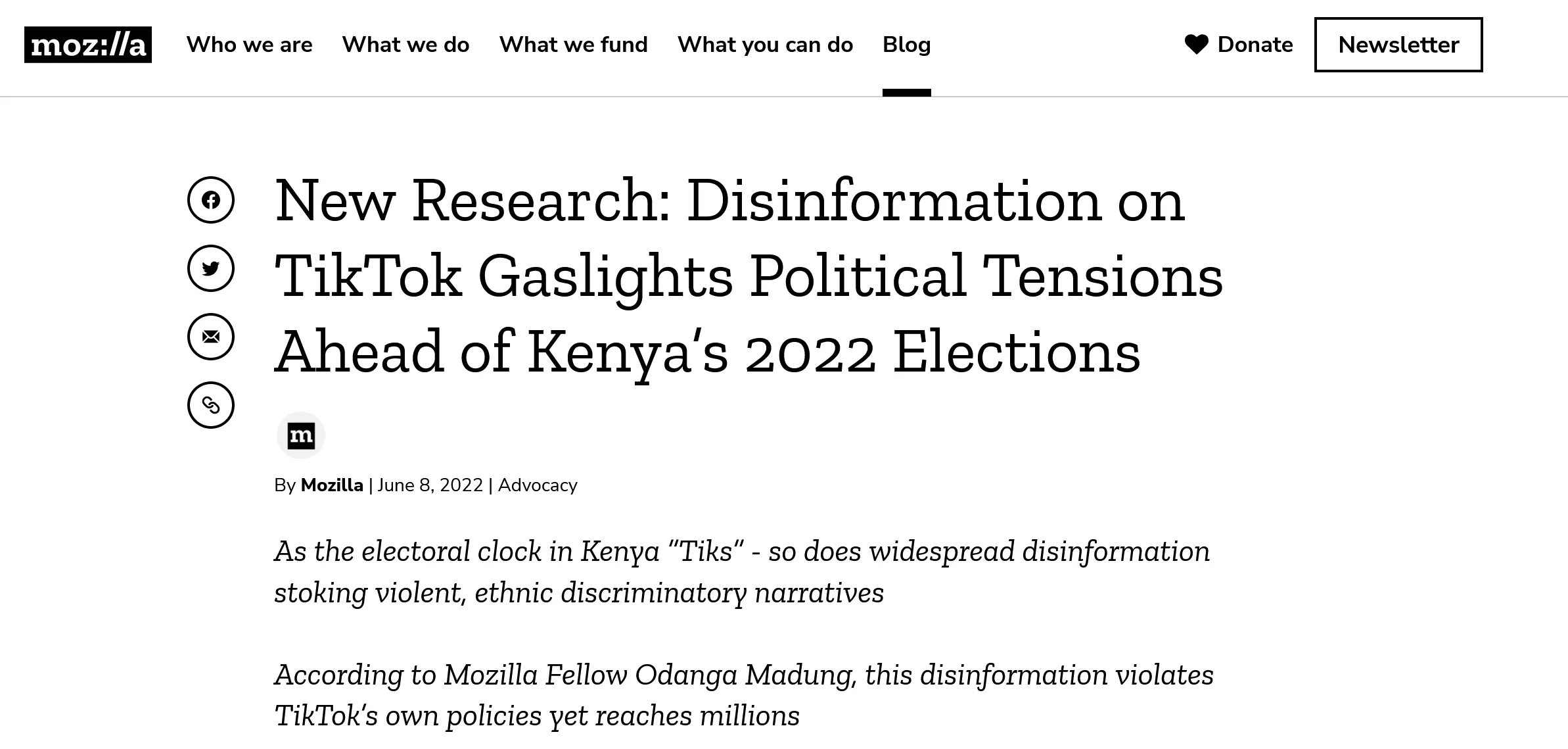A new study by the Mozilla Foundation shows that tiktok is facilitating the spread of false information and increasing political tensions before Kenya's August election Mozilla reached this conclusion after reviewing 130 high rated videos, which are full of hate speech, incitement and political disinformation. This is contrary to tiktok's policy against hate speech and the sharing of discriminatory, inflammatory and synthetic content.

Although these short videos shared by 33 accounts violate tiktok's guidelines and policies, odanga madung, a Mozilla technology and social researcher, pointed out that these videos have not been removed from this short video platform, which is one of the most popular social networking sites in East Africa.
Madung interviewed several tiktok content managers and concluded that their unfamiliarity with the country's political environment may be one of the biggest reasons why some provocative posts have not been deleted.
Madung reviewed the content shared earlier this year through "popular political tags, names of political candidates, key locations, political parties and ethnic communities". These videos include coded language and derogatory words, which are marked as hate speech in the country and banned by the Kenya national cohesion and integration Commission, whose mission is to reduce inter ethnic conflict.
Madung said: "Kenya's democracy is tainted with post election violence. Now, the political false information on tiktok -- in violation of the platform's own policies -- is stirring up this highly volatile political situation. At the same time, tiktok has shown that it is unable to solve this problem."
The study also found that the number of views of some videos exceeded the attention of the audited accounts, indicating the participation of algorithm amplification. The research report pointed out: "many videos have received excessive views compared with their followers. According to the researchers, this indicates that these contents may have been amplified from tiktok's for you page algorithm."
The content moderators interviewed included gadear ayed, tiktok's informant. He said that it is also very common for platform moderators to be asked to review the content of the background and language they do not understand. "Sometimes, the person hosting the platform does not know who the entities in the video are. Therefore, due to the lack of understanding of the context, the video may be allowed to spread. It is common that the moderator is required to review the video whose language and background are different from their understanding."
Like other social networking sites such as twitter, WhatsApp and Facebook, tiktok has been accused in the past of promoting false information and propaganda and adversely affecting the election results.
Tiktok attracts mostly young users. According to the research report, these people are very vulnerable and may be influenced by the content they consume on social applications.
Irungu Houghton, executive director of Amnesty International, pointed out in the Mozilla report that: "Tiktok's population is much younger, which makes me very worried, because they have no political maturity or clear value base, which may allow them to filter out this information. Tiktok needs to realize that the population they face is an emerging generation, so the impact of this movement is not something we may see immediately - but we may see its impact in the next few decades."